Polycystic Ovary Syndrome, commonly known as PCOS, is a common hormonal disorder affecting millions of women worldwide. It can be a challenging condition, with symptoms ranging from irregular periods to fertility issues and even difficulties in managing weight. For many women, managing it can be challenging, but the good news is that natural remedies offer a holistic approach to balance hormones and reduce symptoms. In this blog, we’ll walk through its basics, symptoms, and causes and explore some effective, evidence-based natural remedies for PCOS that many women have found helpful. We’ll also touch on alternative medicine and natural therapies that can complement your journey toward better health.
What is PCOS?
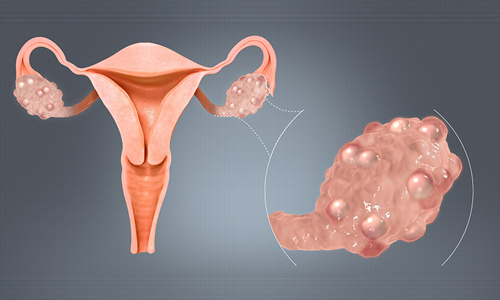
Polycystic Ovary Syndrome, is a hormonal imbalance that affects the ovaries. Women with PCOS often have higher-than-normal levels of male hormones called androgens, which can lead to various symptoms and health issues. The name “polycystic” refers to the tiny, fluid-filled sacs (cysts) that may develop on the ovaries, although not all women with this condition have these cysts. It can affect women during their reproductive years and can have a wide range of effects on the body, making it essential to manage effectively. The good news? While it can’t be “cured,” its symptoms can be managed—and natural remedies can offer significant relief.
Symptoms and Causes of PCOS
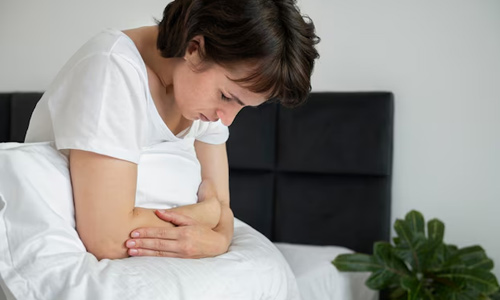
The symptoms of PCOS vary from woman to woman, but some of the most common include:
- Irregular periods: This is often one of the earliest signs, as hormonal imbalances can interfere with the regularity of the menstrual cycle. Here, the periods are too infrequent, too frequent, or absent.
- Excess androgens: High levels of “male” hormones can result in physical signs like excess facial or body hair, acne, or hair loss.
- Weight gain or difficulty losing weight: Many women will find it difficult to manage their weight, particularly around the abdominal area. It can also contribute to insulin resistance.
- Acne and oily skin: Androgens can also lead to increased sebum production, contributing to acne breakouts.
- Ovarian cysts: While not always present, small fluid-filled cysts in the ovaries are a hallmark of PCOD.
- Thinning hair on the scalp: This is another symptom related to androgen levels, leading to hair thinning or even hair loss.
- Fertility issues: Since PCOD affects ovulation, many women with the condition may have difficulty getting pregnant.
Causes of PCOS
The exact cause is not fully understood, but factors such as genetics, insulin resistance, and low-grade inflammation play significant roles.
- Insulin resistance: Many women’s bodies struggle to use insulin effectively, leading to higher insulin levels and an increase in androgens.
- Genetics: This condition tends to run in families, so if your mother or sister has it, your chances of having PCOD are higher.
- Inflammation: Research suggests that women with PCOS may have higher levels of inflammation, which can contribute to insulin resistance and hormone imbalances.
Health Effects of PCOS in Women

It is more than just a reproductive issue. It doesn’t just affect your ovaries; it can have a ripple effect on your overall health. Here are some key health implications of untreated or poorly managed PCOS:
- Type 2 Diabetes: Due to insulin resistance, women with this condition are at a higher risk of developing type 2 diabetes.
- Heart Disease: High blood pressure, cholesterol issues, and insulin resistance, all commonly associated with it, increase the risk of cardiovascular disease.
- Infertility: It is one of the leading causes of infertility in women. Due to irregular ovulation, conceiving can be more difficult.
- Mental Health Challenges: Depression and anxiety are more common in these women due to hormonal imbalances and the stress of dealing with physical symptoms.
- Endometrial Cancer: Women who have irregular periods may have a thicker lining of the uterus, which can raise the risk of endometrial cancer over time.
Given these health concerns, managing it is essential for both physical and emotional well-being. Let’s now explore how natural remedies can help.
15 Natural Remedies for PCOS
When it comes to managing it naturally, the key lies in addressing its root causes—hormonal imbalances, insulin resistance, and inflammation. Here are some evidence-based natural remedies that can make a real difference:
Dietary Changes
One of the most impactful ways to manage the condition is through diet. A diet rich in whole, unprocessed foods can significantly help in regulating blood sugar and hormones. Some tips include:
1. Focus on Low Glycemic Index (GI) Foods
These foods help control blood sugar levels. Opt for whole grains, leafy greens, lean proteins, vegetables, whole grains, and legumes over refined carbs.
2. Increase Fiber Intake

Fiber helps regulate blood sugar and can promote healthy digestion, which is crucial for women as they often experience insulin resistance. A diet rich in fiber can also aid in reducing inflammation and managing weight, both of which are key to controlling PCOS symptoms.
3. Incorporate Healthy Fats
Omega-3 fatty acids found in fatty fish, flaxseeds, chia seeds, and walnuts help reduce inflammation and balance hormones.
4. Avoiding Processed Sugars
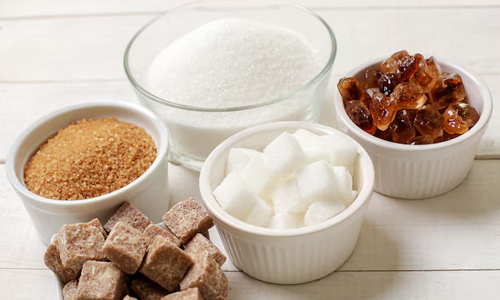
Processed sugars can spike insulin levels, exacerbating your symptoms by increasing insulin resistance and leading to further hormonal imbalances. Reducing sugar intake and opting for low-glycemic foods can ultimately ease their symptoms like irregular periods and weight gain.
Regular Exercise
Physical activity is another powerful tool for managing this condition. Exercise helps improve insulin sensitivity, reduce inflammation, and promote healthy weight management.
5. Aim for a Mix of Cardio and Strength Training

A combination of aerobic activities (like walking, swimming, or cycling), strength training (lifting weights, and bodyweight exercises), and resistance training can yield the best results.
6. Yoga and Pilates

These are gentle but effective ways to reduce stress, improve flexibility, and strengthen the core muscles.
Herbal Remedies
Several herbal remedies are backed by research for their role in improving the symptoms. Some include:
7. Spearmint tea

Studies have shown that drinking spearmint tea can help lower androgen levels and reduce symptoms like excess facial hair and acne.
8. Cinnamon

Research suggests that cinnamon may improve menstrual cycles and insulin sensitivity in women. Its anti-inflammatory and antioxidant properties can help regulate blood sugar levels, making it a natural remedy to support hormonal balance and reduce symptoms associated with this condition.
9. Vitex (Chasteberry)

Vitex is often used to regulate menstrual cycles and balance hormones, making it a popular natural remedy for women with PCOS. It helps by supporting the pituitary gland, which plays a crucial role in hormone production, potentially reducing symptoms like irregular periods and hormonal imbalances.
10. Maca Root
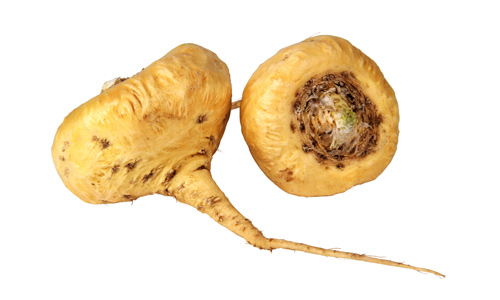
Maca is often used to boost fertility and balance hormones, though more research is needed to fully confirm its benefits.
Stress Management
Chronic stress can exacerbate your symptoms by increasing cortisol, which can affect hormone balance.
11. Incorporate Stress-Reducing Techniques

Meditation, deep breathing exercises, or mindfulness practices can significantly improve symptoms.
12. Adequate Sleep

Poor sleep can aggravate insulin resistance and stress levels. So aim for 7-9 hours of quality sleep each night to support hormone regulation and overall health.
13. CBD (Cannabidiol)

Derived from the Cannabis sativa plant, CBD oil may offer relief from anxiety, insomnia, and the emotional and psychological effects of this condition. However, more research is still needed to fully understand its role.
PCOS Natural Therapy
Incorporating certain lifestyle adjustments can complement natural remedies and improve long-term outcomes for its management. Some examples include:
14. Reducing Toxin Exposure
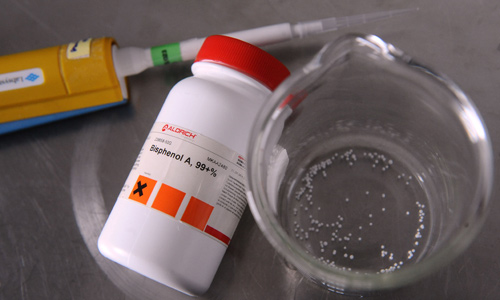
Limiting exposure to environmental toxins like pesticides, BPA, and chemicals in personal care products can help balance hormone levels.
15. Intermittent fasting (IF)

Although not suitable for everyone, some studies suggest that IF may help improve insulin sensitivity and regulate hormones in women.
Alternative Medicine for PCOS
While natural remedies like diet and exercise form the foundation of this management, some women may also explore alternative medicine for additional support. Let’s take a look at some popular alternative therapies:
1. Acupuncture
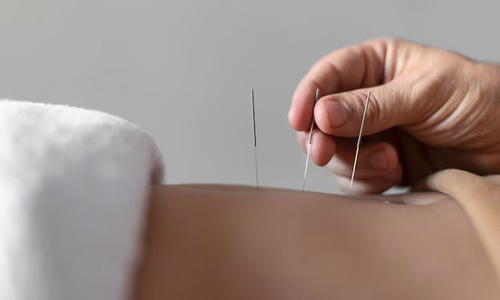
Acupuncture is helpful for these women. It can stimulate blood flow to the ovaries, reduce stress, and potentially improve ovulation and hormone levels.
2. Ayurvedic Medicine
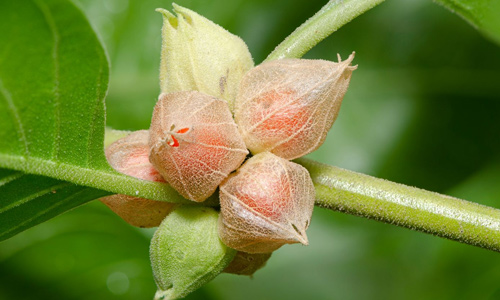
Ayurveda, the ancient Indian system of medicine, often suggests a holistic approach to managing this condition with herbal treatments, dietary changes, and lifestyle practices. Ashwagandha, an adaptogenic herb, is commonly used to balance cortisol and support overall hormonal health in women.
3. Chiropractic Care

Some women find that chiropractic adjustments, which focus on the nervous system, help with hormonal imbalances. While research is limited, chiropractic care may help reduce inflammation and improve overall well-being.
Remember, every woman’s body responds differently, so finding a combination of remedies that work best for you is important. From dietary changes and exercise to herbal remedies and alternative therapies, there are numerous options available to help you take control of your well-being. By integrating these natural treatments into your lifestyle, you can not only manage your PCOS symptoms but also improve your overall health and well-being. If you’re unsure where to start, consult with a healthcare provider to create a plan that supports your individual needs.
Valentina
Related posts
Women Tips
Privacy Overview
| Cookie | Duration | Description |
|---|---|---|
| cookielawinfo-checkbox-analytics | 11 months | This cookie is set by GDPR Cookie Consent plugin. The cookie is used to store the user consent for the cookies in the category "Analytics". |
| cookielawinfo-checkbox-functional | 11 months | The cookie is set by GDPR cookie consent to record the user consent for the cookies in the category "Functional". |
| cookielawinfo-checkbox-necessary | 11 months | This cookie is set by GDPR Cookie Consent plugin. The cookies is used to store the user consent for the cookies in the category "Necessary". |
| cookielawinfo-checkbox-others | 11 months | This cookie is set by GDPR Cookie Consent plugin. The cookie is used to store the user consent for the cookies in the category "Other. |
| cookielawinfo-checkbox-performance | 11 months | This cookie is set by GDPR Cookie Consent plugin. The cookie is used to store the user consent for the cookies in the category "Performance". |
| viewed_cookie_policy | 11 months | The cookie is set by the GDPR Cookie Consent plugin and is used to store whether or not user has consented to the use of cookies. It does not store any personal data. |

